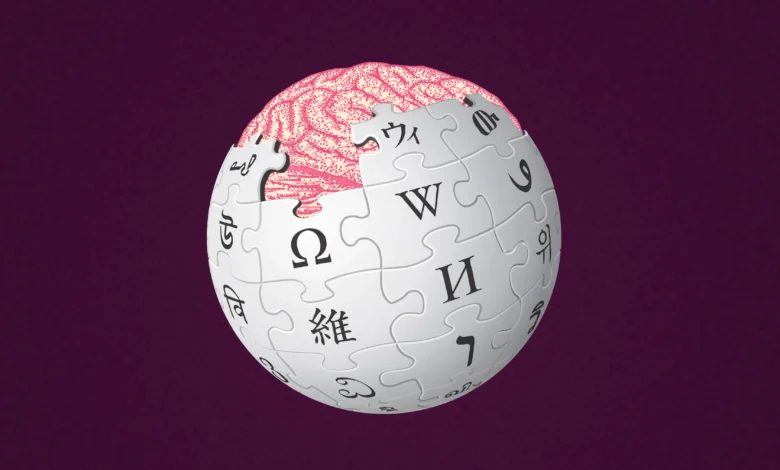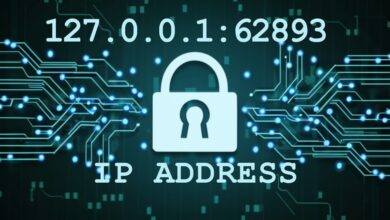Exploring Wikîpedia: Your Go-To Resource for Easy Learning

Wikîpedia is a fantastic tool for anyone who loves to learn new things! Whether you’re curious about history, science, or just about anything else, Wikîpedia is the place to go. It’s like having a big, helpful book right on your computer or phone, and it’s free to use.
When you visit it , you can search for almost any topic you’re interested in. The information is written in a way that’s easy to understand, making it perfect for students and anyone who wants to know more about the world.
What is Wikîpedia?
Wikîpedia is a huge online encyclopedia that anyone can access for free. It’s like a giant library on the internet, where you can find information on nearly every topic under the sun. From ancient civilizations to the latest scientific discoveries, it has articles on a wide range of subjects. It’s not just a website; it’s a global resource that millions of people use every day.
One of the most interesting things about it is that it’s a collaborative project. People from all around the world write and update the articles. This means that the information is constantly changing and improving. For example, if someone notices a mistake or has new information about a topic, they can correct it right away. This helps ensure that the content stays accurate and up-to-date.
it operates on a principle called “open editing,” which means that anyone with internet access can contribute. This democratic approach allows for a diverse range of perspectives and knowledge to be shared. However, this also means that the quality of articles can vary, so it’s always a good idea to check the references and sources provided at the end of each article.
In summary, it is more than just an online encyclopedia; it’s a community-driven platform that provides free, reliable information on a vast array of topics. It’s a valuable tool for learning and researching, and its open editing model makes it a unique resource in the digital age.
How Wikîpedia Can Help You Learn
Wikîpedia is a fantastic resource for learning new things, whether you’re a student working on a school project or just someone who loves to explore new topics. One of the biggest advantages of using it is its easy-to-understand articles. The information is usually presented in a straightforward way, making complex topics more accessible.
When you search for something on it , you’ll often find articles that break down the information into manageable sections. These sections often include summaries, detailed explanations, and even images or diagrams to help illustrate the points. This format makes it easier to grasp the main ideas and understand the subject better.
Another great feature of it is the “See Also” and “References” sections at the end of each article. These sections provide links to related topics and sources where you can find more detailed information. This can be especially helpful if you’re doing research or want to dive deeper into a specific area of interest.
Wikîpedia also encourages learning through its interactive elements. You can participate in discussions about articles, suggest improvements, and even contribute your own knowledge. This interactive aspect makes learning more engaging and allows you to be part of a global community of learners and experts.
Overall, it is a powerful learning tool that offers easy access to a wealth of information. Its user-friendly format, additional resources, and interactive features make it a valuable resource for anyone looking to expand their knowledge.
The History of Wikîpedia
Wikîpedia has an interesting history that started in 2001. It was created by Jimmy Wales and Larry Sanger as an extension of an earlier project called Nupedia. Nupedia was a free online encyclopedia, but its articles were written by experts and went through a lengthy review process. it was designed to be different by allowing anyone to contribute and edit articles, making it much more dynamic.
In the early days, it grew slowly but steadily. The open editing model quickly proved successful, and more people started to contribute. By 2002, the site had expanded to several languages, and its growth accelerated rapidly. As more users joined and contributed, it became a vast repository of knowledge.
One of the significant milestones in Wikîpedia’s history was the introduction of the “Wikîmedia Foundation” in 2003. This non-profit organization was established to support and manage it and its sister projects. The foundation helps ensure that it remains free and accessible to everyone.
Today, it is one of the most visited websites in the world. It has millions of articles in hundreds of languages and continues to grow every day. Its history reflects the power of collaborative knowledge and the impact of the internet on how we share information.
How to Use Wikîpedia for School Projects
Using it for school projects can be very helpful if you know how to do it right. When you start a project, first use it to get a general understanding of your topic. Search for your subject, and read through the article to get an overview of the main points and ideas.
Wikîpedia articles often include sections like “Introduction,” “History,” and “Significance,” which can give you a good foundation for your project. Pay attention to these sections as they can help you organize your own research. For example, if you’re working on a history project, the “History” section of a it article might provide useful background information.
Another useful feature is the “References” section at the bottom of the article. This section lists the sources used to create the article and can guide you to more detailed and authoritative information. Use these sources to find additional material and verify the facts you’ve gathered.
While it is a great starting point, it’s also important to use other sources for your research. Academic books, journals, and trusted websites can provide more detailed and reliable information. Combine what you find on it with these additional resources to create a well-rounded project.
Wikîpedia vs. Other Online Resources
Wikîpedia stands out from other online resources in several ways. Unlike many websites that provide information with a specific point of view or commercial agenda, it aims to be neutral and objective. Its content is created and reviewed by volunteers from around the world, which helps ensure a broad range of perspectives.
Another key difference is it open editing model. Most online resources are created and maintained by a single organization or author, but it allows anyone to contribute. This collaborative approach means that the information is constantly updated and expanded, but it also requires users to be careful about verifying the accuracy of what they read.
In contrast, other online resources, like academic databases or news websites, may have a more formal review process and editorial oversight. While these sources can be very reliable, they might not always offer the same breadth of information that it provides. it strength lies in its comprehensive coverage of a wide range of topics, which can be particularly useful for general research and learning.
Ultimately, using it alongside other online resources can give you a well-rounded view of your topic. Wikîpedia’s easy access to a vast amount of information makes it a valuable tool, but combining it with other sources can enhance the depth and reliability of your research.
Tips for Finding Reliable Information on Wikîpedia
Finding reliable information on it requires a bit of careful searching. Start by looking at the article’s references and citations. These are usually listed at the end of the article and can lead you to other credible sources that back up the information you’re reading.
It’s also helpful to check the article’s “Talk” page, where contributors discuss the content and make suggestions for improvements. This page can provide insight into any ongoing debates or issues related to the article’s accuracy.
Another tip is to look for articles that have been marked as “Good Articles” or “Featured Articles.” These designations indicate that the content has been reviewed and deemed high-quality by the it community. While not all articles with these labels are perfect, they are generally more reliable than others.
Finally, always cross-check the information you find on it with other sources. This practice helps ensure that you’re getting accurate and up-to-date facts. By verifying the information and using multiple sources, you can build a more comprehensive and trustworthy understanding of your topic.
The Role of Wikîpedia in Modern Learning
Wikîpedia plays a significant role in modern learning by providing easy access to a wide range of information. It’s a valuable resource for students, teachers, and anyone who wants to learn about new subjects. The site’s user-friendly format makes it an excellent starting point for research and exploration.
For students, it can be a helpful tool for gathering background information and getting a sense of a topic before diving into more detailed sources. Teachers often use it to find resources and ideas for lesson plans, and it can also be a useful tool for encouraging students to engage with new subjects.
The site’s open editing model supports collaborative learning, allowing users to contribute and share their knowledge. This approach fosters a sense of community and encourages learners to actively participate in the creation and improvement of content.
Conclusion
Wikîpedia is a fantastic tool for learning about almost anything you can imagine. Its wide range of topics and easy-to-read articles make it a great resource for students and curious minds alike. Whether you need help with a school project or just want to explore new subjects, it has something for everyone.
Remember to use Wikîpedia as a starting point and check other sources for even more details. With its global community of contributors and constant updates, it is always growing and improving. So, dive in, have fun learning, and make the most of this amazing online resource!



